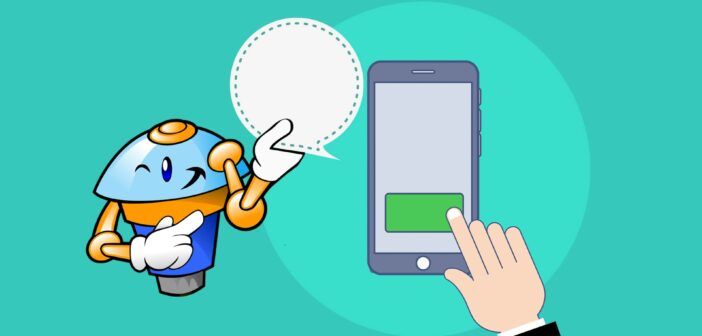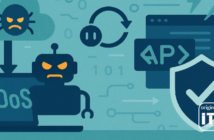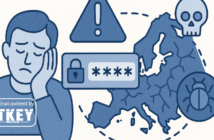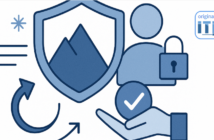István Tóth is a corporate communications expert at Talk-A-Bot. He wrote the article without using ChatGPT and kindly shared it with our readers.
Dawn of the Chatbot Era
The first stories were about love poems, homework, as well as school bans, then suddenly it became cool to interview robots instead of humans. The collective chatbot gaming experience, which has reached the level of everyday use, has made ChatGPT the first global – almost pop-cultural – fashion of 2023. In parallel, a global community of chatbot users was born, a working and consuming class that understands the technology and adapts to it at lightning speed.
The basic experience of ChatGPT users is that it names, finds, and writes things for us, providing a good starting point for almost any request (as long as the site overloaded due to popularity is responding).
The AI chatbot is predicted to have an impact equivalent to that of Google and Facebook, based on the reported $10 billion investment and the popularity of the last few weeks. Not only because it has been discovered by millions in an extremely short period of time, but also because it is still in trial mode. Moreover, its success has prompted the competitor, which felt called on and immediately called its founders for an emergency joint brainstorming meeting, to announce the launch of its own chatbot within a short time. So the big collective chatbot craze is only just beginning.
However, companies could benefit from solutions with much more modest capabilities than an “omniscient” chatbot like ChatGPT to improve their competitiveness in their market.
Before analyzing the capabilities of ChatGPT, it is worth stating that for companies, a chatbot is useful if it delivers value, i.e. profit. It performs a task, saves time, and handles volume. A good corporate chatbot is controlled, trained, shaped, and improved by the company. Because using it is not only an opportunity but also a task and responsibility.
What Is the Reason for ChatGPT’s Popularity?
It’s fun and provides a better user experience than Google. It is easier to search for something than it is with Google. You don’t need to know the exact name of what you’re looking for, just describe it and it’s likely to understand your intent. This high level of ‘comprehension’ has not been commonly seen before. In chatbot technology, a high relevance rate of responses (when the bot “understands”, i.e. correctly guesses the customer’s intent and responds to it) is one of the most important requirements, as it is the basis for customer satisfaction.
It stays in context, i.e. it stays long on the topic of the issue we are interested in (this can be very useful for problem-solving later on).
It provides thought-provoking, basic raw material in a variety of formats and arguments, sometimes within the specified quantitative limits. This ability seems to be the most useful feature for the individual user.
ChatGPT has provided us with a talented, hard-working assistant, who can work under pressure and without a salary increase.
Cons from the Corporate Point of View
ChatGPT is not consistent. This is the biggest obstacle for using it ‘copy-paste’ as a corporate chatbot in the short term, as it gives three different answers to three questions (intents) on the same topic. Imagine a chatbot offering a bank product comparison or a health service with three different answers.
THE USERS EXPECT THE COMPANY’S CHATBOT TO PROVIDE NOT ONLY RELEVANT BUT COHERENT ANSWERS, just like the company that provides reliable data (corporate digital responsibility). Without coherence in the answers, we can easily find ourselves in a situation where consumers are misled.
Also of concern are the blank spots in logic. It knows the shape and definition of words but not their meaning. ChatGPT cannot fact-check, cannot distinguish between verified and half-truths, and confidently asserts falsehoods, in the words of AI experts: it hallucinates.
Consequently, the use of ChatGPT without comprehensive and thorough professional checking and uncontrolled professionalism to provide answers or to write documents (e.g. contracts, professional opinions, plans, etc.), that bear financial, legal, ethical, business, or other responsibilities, carries outstanding risks for users.
The data assets of the conversation taking place on it are somewhere in a cloud. In contrast, particularly sensitive financial or health service providers may be mistrusted.
Cyber security: the vulnerability of ChatGPT is not yet known. We have already heard that groups with hostile intentions are analyzing how it could be used for minimal disinformation purposes.
What Are Chatbots Good for?
An advanced enterprise chatbot (with an estimated annual cost of implementation analogous to the price of a manager’s non-premium company car) is one of the best quick-return investments in the enterprise digitalization toolkit today, with a 3-6 month return of investment.
While ChatGPT has created a sense of “we should have something like this”, the promise of omniscience can be replaced by chatbots that have much more modest capabilities, but can quickly serve customers and perform tasks that can be automated.
Companies don’t need to have an AGI (Artificial General Intelligence) chatbot that can write a perfect haiku in Catalan about the business continuity of a gas boiler repair company. Instead, they need a relevant chatbot that can reliably tell the customer stock information or service requirements and helps to achieve their goals. A good company chatbot will give an immediate answer (information) and do the job (generate revenue), and that’s enough – because no one is going to ask an insurance company chatbot which popular pub in Krakow the popular diva wrote her latest hit song in.
How can chatbots be used for the benefit of economic production? First and foremost, by understanding the benefits, limitations, advantages, and inherent ramifications of using AI and chatbot technology.
The promise of digital up-to-dateness and catching up means that humans are there to plan, think, and analyze complex things. Creativity is our privilege, let the chatbots do the rest!

István is a corporate communications expert from Budapest. He closely monitors and analyzes the interactions between the technology industry and the financial world, as well as the food and agricultural sector.





